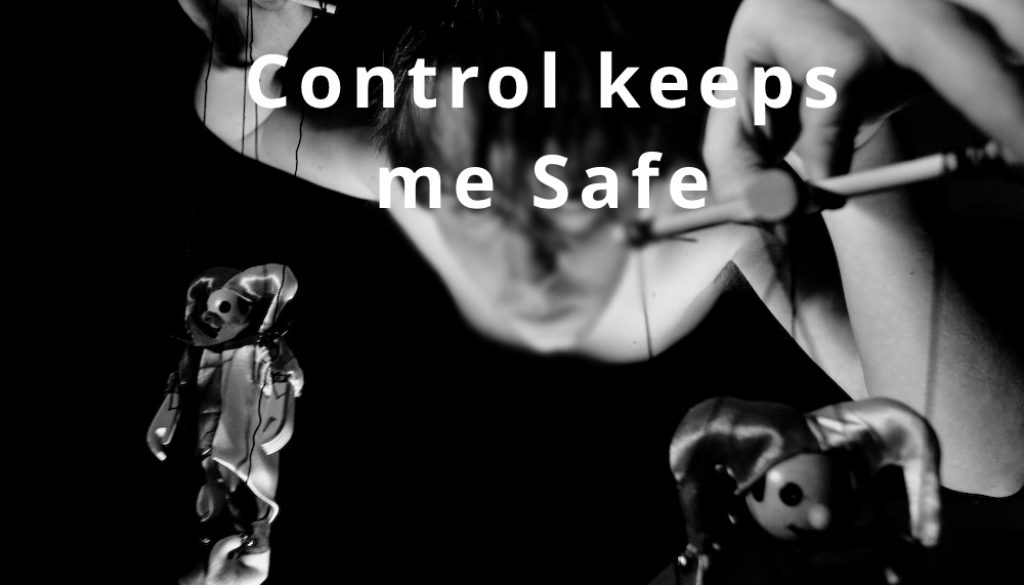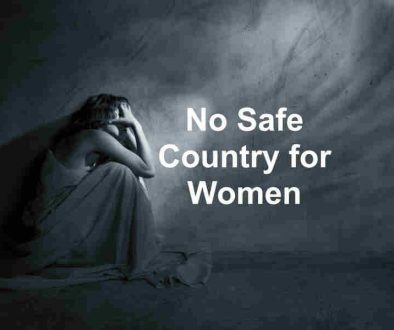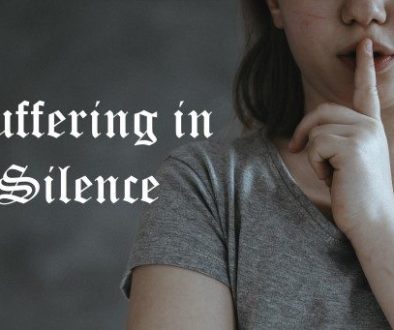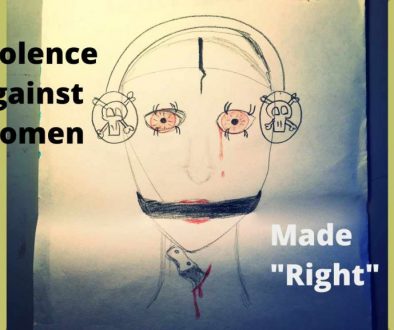Do you have an Inherent Need for Control?
In my last week’s blog, I took a macro approach and talked about how engrained control is in our lives. We are conditioned to want to control and live with it almost every day. For the Abused, the need for control becomes even more important and in this blog, I will share why and how. Next week, I will share strategies that you can use to heal this part of you. For now, let’s focus on understanding and unraveling control.
By the way, if you are curious about the terms “abused” and the “abuser”, click here to read why I use these.
I want to go back to the beginning where it all started. That’s where some of these patterns were originated. And here is the reason why. If you were abused as a child, you most likely felt some or all of these:
- You felt helpless because you weren’t able to stop the Abuser.
- The situation felt out of control.
- You felt unsafe because someone else had the power over you.
- You didn’t know where and how far it was going to go and you felt scared.
- You had to numb your body and feelings otherwise, you didn’t think you could cope.
In one of my earlier blogs Anatomy of Childhood Sexual Abuse Trauma, I explained how these experiences are handled by the brain. The end result is that we become adults with a lack of trust in ourselves and lack of trust in other people. We feel unsafe all the time and feel afraid that the abuse will occur again.
And what do we do about it? We CONTROL.
Control allows us to feel safe again because we “know” that if we control and if we are in control and if we know everything there is to know then nothing bad will happen.
As long as we control, we don’t have any need to trust ourselves or trust others.
As long as we control, we feel safe.
I bet some of you are living life in this manner. Do you know what are the costs of living this way? The biggest cost is a lack of real and intimate connection. I know that when I was driven unconsciously by control, I wasn’t willing to trust anyone so my relationships were marred by this lack of trust. I WAS and always wanted to be “self-sufficient”. I couldn’t rely on other people because I didn’t trust that they would come through for me. Do you feel this way as well?
Do you feel that you are alone and no one is trustworthy?
Do you trust yourself?
Do you lack real and intimate connections?
Control gives you safety and it keeps you safe but it drives other people away; it doesn’t allow them to see YOU.
Forms of Control
There are many forms and many levels of exercising and expressing control. I will share some of these (of course, these are the ones that I have exercised myself and have been subjected to for years).
I must confess. Recently, I have been at the receiving end of some of this control and I found it quite uncomfortable. As I write this blog, my body is remembering some of these experiences and making me feel a bit sad.
But the show must go on… so here are the various forms of control:
Control by Controlling
If you are exercising this level of control, you are most likely feeling “extremely unsafe” and “extremely untrustworthy” and the only way that you feel safe is to exercise this extreme form.
I know I didn’t have many deep friendships when I exercised this form of control.
Not so long ago, I was with a friend and I offered to prepare the cat food for the first time for his cats. Prior to this, I had seen him do this million of times but he also explained the process again and gave me instructions on how to do it. Still, this wasn’t enough. He stood next to me and watched and instructed more. Was the food at the right temperature? Did I apportion the meals correctly? Did I use the fork to make the surface of the food a bit nice looking?
I felt scrutinised but more importantly, I didn’t feel trusted. I felt that I didn’t need to use my brain because he was doing the thinking and the watching. This incident affected the way I related to that friend.
I can tell you this – if you exercise this level of control, people around you don’t have to do any thinking because you are doing it for them. I don’t know about you but personally, I feel that it’s a lot of hard work and costs too much.
Control by Creating Certainty
This is a less extreme form of control and involves asking lots and lots of questions before doing anything. The more you know about your environment and about what’s happening around you, more certain you feel. This means knowing all “what if” scenarios so that you can prepare in advance.
People who exercise this level of control, generally do a lot of research and know pretty much all there is to know before walking into any activity. When they are around people, they keep their guard up until such time that they get to know them and their environment.
It is debatable whether one can fully let go or trust others. The need for certainty, in many cases, rises from a lack of trust. In my experience, I have found that when I exercised this level of control, I couldn’t fully trust. At the receiving end of this behaviour, I just didn’t want to be with these people.
Control by Manipulating
This is where the deceit comes into the forefront. These are people who don’t trust themselves, don’t trust others and are afraid to communicate openly so they turn to manipulation. They use love, sex, guilt, shame, threats, and cajoling to get what they want from other people. They are political and are mostly passive aggressive.
I am about to say that I have never exercised this form of control but now I am reflecting on this and I have to say that I have spent a lot of my life being unconscious about my trauma so I must have. And it doesn’t make me feel good to say this. I am sad that I have done it and I am also happy that I am no longer unconscious about these patterns and have made changes to my life to create more open and honest connections.
Control by being Self Sufficient
This has been the hardest one to work with. In the past, I have considered calling for “help” a sign of weakness so I never did. For a long time, my friends couldn’t imagine me crying (thank goodness that is no longer the case). In those days, my self-sufficiency was driven from a lack of trust.
I am still very self-sufficient but now I feel happy when I receive help and It’s not that hard to ask for help. This has been such a release because I don’t have to live my life all on my own and I can rely on friends and family for support. I allow myself to be vulnerable and express my feelings and need for others’ love and support.
What form of control do you exercise? Some or all of these? How much does it cost you to keep living this way? Do you want to change?
In my next week’s blog, I will share about how to develop discernment so you can choose when to control and when to let go (yes, I don’t think that we can live without control but we can certainly develop more discernment). I will describe how to create a space where you can trust yourself and trust others and how to live from your vulnerable strength.
Till then, be safe
Blessings and Love
Ruby



